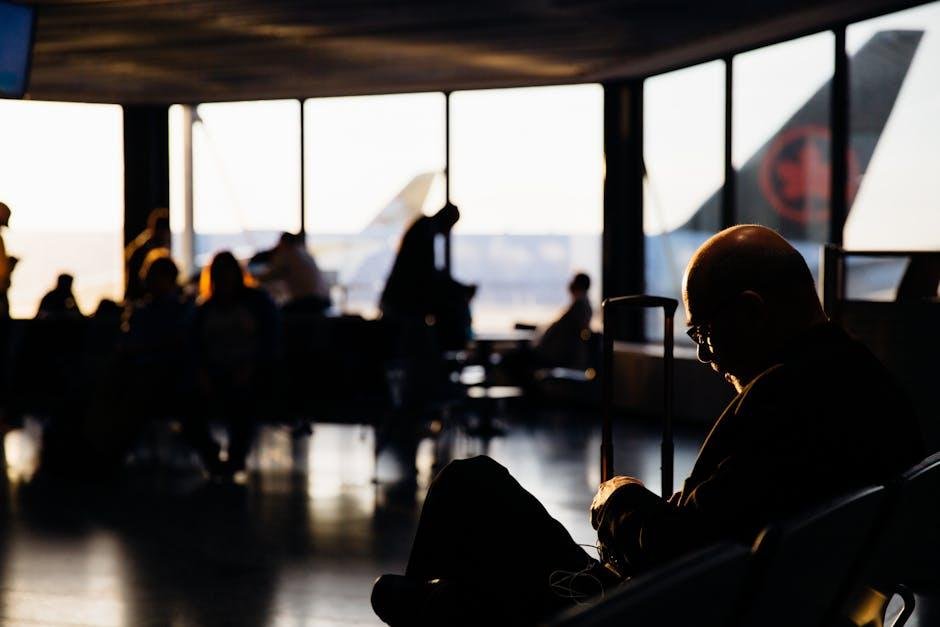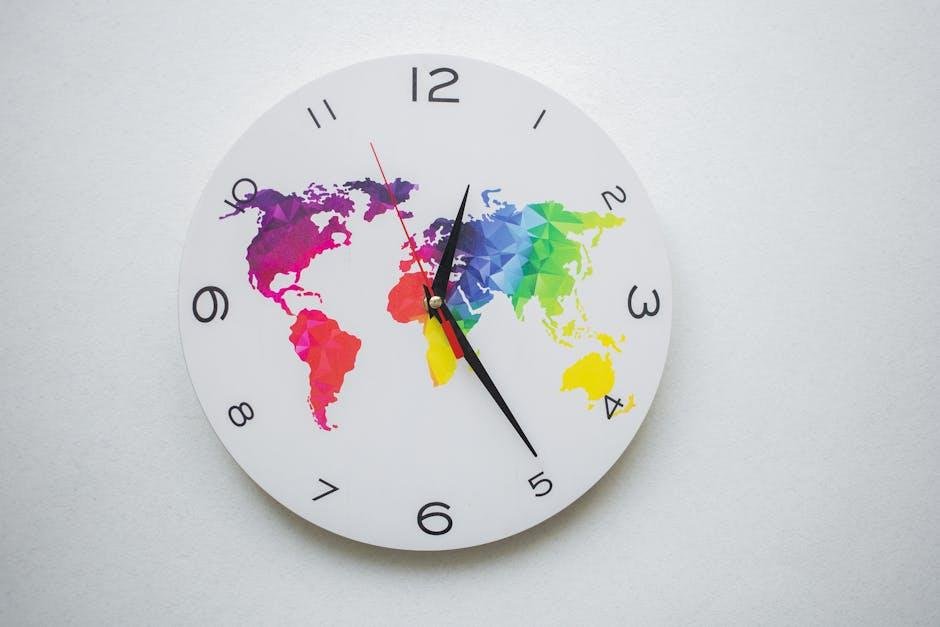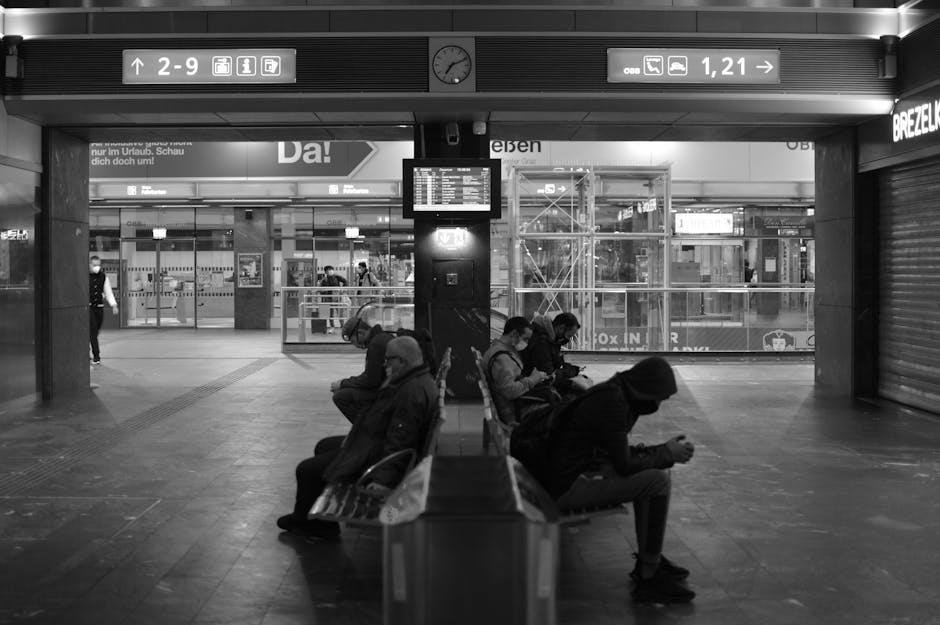Jet Lag Recovery Hacks That Actually Work: A Traveler’s Guide to Beating the Time Zone Blues
in our modern world of jet-setting adventures, the thrill of exploring distant lands often comes hand in hand with an unwelcome companion: jet lag. As the plane touches down in a new time zone, the body’s internal clock may find itself in a bewildering state of confusion, leaving travelers battling fatigue, mood swings, and a sense of disorientation. Fortunately, amidst the ebb and flow of time zone shifts, ther exists a treasure trove of recovery hacks designed to help weary wanderers reclaim their energy and enjoy every moment of their journey. In this article, we’ll delve into practical strategies backed by science and seasoned travelers alike. From pre-flight preparations to in-flight tips and post-arrival rituals, uncover the effective methods that can turn your travel fatigue into vitality, ensuring that the onyl thing you feel when you land is excitement for the adventures ahead.
Understanding the Science of jet Lag and Its Impact on your Body
Jet lag occurs when your body’s internal clock, or circadian rhythm, struggles to adjust to a new time zone. This misalignment affects various physiological functions, resulting in symptoms like fatigue, insomnia, and irritability. Your body’s release of melatonin, a hormone responsible for regulating sleep-wake cycles, can be thrown off by sudden changes in light exposure during travel.As your body grapples with transitioning between different light-dark cycles,it may exhibit signs of distress,creating a ripple effect on your overall well-being.
Understanding the underlying mechanics of jet lag helps travelers devise effective recovery strategies. Here are some immediate actions to consider:
- Stay hydrated: Drink plenty of water to help your body adjust and mitigate feelings of fatigue.
- Mind your meals: Eating at the right times can help signal to your body when it’s time to wake and sleep, aligning it with the local schedule.
- Gradual transition: If possible, adjust your sleep schedule a few days before traveling to match your destination’s time zone.
Moreover, certain practices can be instrumental in aiding recovery:
| Strategy | Description |
|---|---|
| Light Exposure | Seek natural sunlight upon arrival as it reinforces your circadian rhythm. |
| Napping Wisely | Short naps help recharge your energy without affecting nighttime sleep. |
| limit Caffeine | Restrict caffeine intake close to bedtime to improve sleep quality. |

Effective Strategies for Resetting Your Internal Clock
resetting your internal clock after a long flight is crucial for a speedy recovery from jet lag. One of the most effective techniques is to gradually shift your sleep schedule before your trip. Start altering your bedtime and wake-up time by 30 minutes to an hour in the days leading up to your departure. This gentle adjustment can make a significant difference as your body acclimates to the new time zone. Additionally, upon arrival, make a point to expose yourself to natural sunlight. Daylight is a powerful cue that signals to your body when to be awake or asleep, so spend time outdoors during the day to help sync your circadian rhythm to the local time.
Another strategy worth considering is the use of melatonin supplements. Taking melatonin approximately 30 minutes before your desired bedtime can definitely help signal your body that it’s time to sleep. However, it’s essential to use this supplement cautiously and consult with a healthcare provider for the correct dosage and duration. Also, staying hydrated is often overlooked; aim to drink plenty of water during your flight and after landing, as dehydration can exacerbate feelings of fatigue. Here’s a rapid table to summarize additional tips for a faster adjustment:
| Strategy | Description |
|---|---|
| Light exposure | Spend time in natural sunlight after arrival. |
| Sleep Schedule Adjustment | Shift your bedtime gradually before traveling. |
| Hydration | Drink plenty of water to combat fatigue. |
| Melatonin Use | Consider short-term melatonin for sleep aid. |

Nutrition and Hydration Tips to Combat Jet Lag Symptoms
To navigate the challenges of jet lag, prioritizing your nutrition and hydration is crucial. Start by adjusting your diet before you even board the plane. Focus on incorporating whole foods, such as fruits, vegetables, lean proteins, and whole grains into your meals to help stabilize your energy levels. Consider these dietary strategies:
- Eat Smarter: Opt for lighter meals that are rich in fiber and protein, avoiding heavy, greasy foods that may leave you feeling sluggish.
- Limit Caffeine: Try to reduce your caffeine intake, especially in the hours leading up to your flight, to prevent disruptions in your sleep cycle.
- Stay Balanced: Include foods high in magnesium, like spinach and nuts, which can assist in relaxation and promote better sleep.
Hydration is equally vital. Airplane cabins can dehydrate your body quickly, exacerbating jet lag symptoms. Here’s how to keep your hydration on track:
- Drink Water: Aim to drink at least 8 ounces of water for every hour of your flight.This helps combat the dry cabin air.
- Avoid Alcohol: While it might be tempting to have a drink or two, alcohol can disrupt your sleep patterns and worsen your jet lag.
- Electrolytes Matter: Consider bringing along electrolyte drinks or tablets to replenish essential minerals lost during travel.
| Food | Benefit |
|---|---|
| Bananas | High in potassium; helps regulate sleep. |
| Oatmeal | Rich in fiber; promotes sustained energy release. |
| Almonds | High in magnesium; aids in relaxation and sleep quality. |
| Herbal Tea | Calmative properties to prepare your body for rest. |

Mindful Practices to Ease Your Transition after Travel
Transitioning back to your routine after travel can feel overwhelming, but incorporating mindful practices can significantly ease this process. Start by scheduling time for yourself to unwind each day. Rather then jumping straight into work or chores, dedicate at least 15-30 minutes to experience stillness. This could include meditation, deep breathing exercises, or simply enjoying a cup of tea in silence. Emphasizing these moments of tranquility allows your mind and body to reconnect, promoting a sense of grounding and ensuring smoother navigation through the jarring effects of jet lag.
Another effective approach to counteract travel fatigue is to create a mindful evening ritual. Consider the following elements to incorporate into your nightly routine:
| Element | Description |
|---|---|
| relaxation Techniques | Engage in gentle yoga or stretches to release tension. |
| Digital detox | Avoid screens at least one hour before bed to calm the mind. |
| Herbal Tea | Sip on chamomile or lavender tea to encourage restful sleep. |
| Gratitude Journaling | Write down three positive experiences from the day. |
By consciously engaging in these practices, you’ll not only help alleviate the symptoms of jet lag but also cultivate a state of mindfulness that enhances your overall well-being, allowing you to truly absorb the joys and lessons from your travels.
Future Outlook
As we traverse the globe, embracing new cultures and experiences, the challenge of jet lag can dim the excitement of our adventures. However, with the right strategies in place, we can transform this pesky travel companion into a mere afterthought. From simple hydration tips to the ingenious use of light therapy, these jet lag recovery hacks empower us to reclaim our rhythm, no matter where we land. So,the next time you find yourself battling the disorientation of a long flight,remember that with a bit of planning and the tactics shared here,you can leap back into your journey refreshed and ready to explore. Safe travels, and may your jet lag be short-lived!


